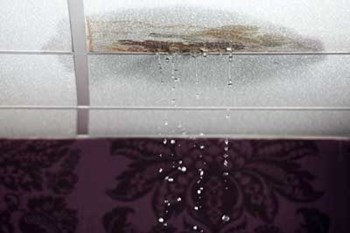
In today’s turbulent economic times as so many of us try to regain our financial footing, the question of how to balance the bottom line and still take care of all that needs to be done in a co-op and condo building remains a difficult one. Certainly, in an ideal world, any and all maintenance needs would be fixed the minute they occur. With smaller staffs and smaller budgets, however, priorities must be set and sometimes a problem or two has to be put on the back burner.
The question then becomes, how do you recognize what seemingly small problems can grow into big ones and which ones can the maintenance team afford to hold off on? It’s a tricky question, one that involves knowing one’s building inside and out and having the experience or knowledge necessary to determine when a problem is just a squeaky wheel or when it means the whole wheel might fall off.
What Comes First
So which issues must be tackled first? “If you ask that question of a board, they’ll say everything,” says Jeffrey Heidings, president of Siren Management Corp., based in Manhattan. And in many ways, that is the right approach because an environment that is physically cared for appeals directly to potential buyers and to the satisfaction of current residents.
“Certain things are all relative in terms of care,” Heidings says. “It takes a little effort to deal with it. If there’s rust on a gate, that indicates a lack of care. Take a wire brush to it. All of this reflects on how the place is being cared for. These little things add up.”
For example, Heidings says, in one building with a glass door entryway, one of the panes was cracked. “It wasn’t dangerous, it wasn’t breaking through, it was just cracked,” he says. “But a crack in the entryway does not look right. Why should a building that houses such good apartments have something like that.”
So while the firm could have waited for a larger-scale renovation project into which they could fold that cracked pane, the maintenance team took care of it immediately. “We replaced it and didn’t wait for the renovation,” Heidings says. “No item that reflects on a building should go uncared for. Discerning people notice things like that.”
Sometimes waiting can add to an expense as well. It all boils down to a question of “deferred versus preventative maintenance,” says Jeff Stillman, CPA, vice president of Stillman Management Inc., based in Mamaroneck, New York. “You have to be careful with deferred maintenance because it can become a capital expenditure.”
When “Now” is Not Possible
The vast majority of co-op and condo associations no doubt have similar philosophies, wanting to tackle maintenance and renovation projects as soon as they arise. For many, though, it may not be an option. That is where management can help. “A manager, by all means, has to help the board prioritize,” says Heidings. “That’s one of our key roles.”
Stillman agrees. “You have to have a priority procedure. You must prioritize and safety is always the first thing on that list. You must take care of anything that could result in someone getting injured.”
And Floyd Brigman, an account executive at Stillman Management, adds, “Water also should never be deferred because it could lead to health issues. Water getting into a building has to be addressed because it can cause mold and other building issues.”
While a very small bit of water in a rarely-used area of a building’s basement could perhaps be put off until a larger planned maintenance effort is underway, it is absolutely imperative to take care of all other leaks or seepage as soon as they are discovered. “If a unit has a leak, you cannot defer that because it is affecting a resident and it could lead to mold,” says Stillman.
Tony Malatos, president of KNS Building Restoration, Inc., based in Middle Village, New York, agrees, citing water leaks as one of the red flags that should never be ignored. A roof leak, for example, “if left unrepaired can lead to mold, masonry failure and rotting of wood,” Malatos says.
In fact, water just about anywhere that it is not supposed to be could signal trouble. “Extensive ponding of water days after a rain can lead to premature roof failure,” Malatos says. “All roof drains should have a ring and dome-type drain cover and be checked at least twice a year by building maintenance, preferably in the spring and fall.”
Clogged drains, too, where water is failing to flow, also can seem like a trivial thing that could quickly turn into something a lot more damaging and expensive. “We have seen clogged drains contribute to the flooding out of entire buildings as well as roof collapses,” Malatos says.
Two key principles to keep in mind are to follow regular maintenance schedules and listen to the advice of maintenance staff. “Most building’s supers are knowledgeable enough to know what needs to be done,” Malatos says. “They should keep a checklist for items that require maintenance” throughout the year.
Don’t Ignore These Either
A building’s exterior can be rife with potential issues as well. Pointing on the roof, for example, can lead to structural failure of the building’s masonry and steel if left untended. “A lot of people think pointing stops leaks, but if there is a façade leak on masonry, it is usually neglect that led to some type of failure,” says Malatos, adding that steel shelf angles or lintels are the number one cause of leak infiltration.
If the super or an engineer stumbles upon deteriorated mortar joints that are sandy to the touch or blown out pieces of mortar joints found around the building’s perimeter or hanging off the building, those too are signs of potentially significant problems down the road. In all likelihood, it means “water infiltrated and a freeze-thaw was to blame,” Malatos says.
When It’s Okay to Delay
While safety issues and problems that can lead to larger structural damage later must always be addressed as soon as possible, there are smaller maintenance items that often can be deferred. That is especially true for issues relating to design or aesthetics. “You can defer things like re-wallpapering the hallways,” says Brigman.
Or perhaps a big-ticket item like an elevator is coming up fast on its replacement date. If it is still functioning smoothly, thanks to efficient and well-scheduled maintenance, then the modernization of that elevator may be able to wait for a while, until the cost can be put into a long-term plan.
Heidings also suggests that if an engineer has determined that there are no safety issues or water infiltration, Local Law 11 façade work can be put off until there is enough of it to garner the hiring of a contractor to fix it all at once. “Cracked bricks, loose pointings, a little caulking damage, they’re all repair items but they don’t have to be rushed into, especially if there is no imminent water penetration,” he says. “It’s more efficient to do a certain amount of work at once.” If you have to get sidewalk sheds, for example, it’s better to only have to set them up once rather than several times to take care of smaller projects. And, boards and managers can “economize by bidding out to contractors.” And because management knows that a certain amount of work will need to be done all at once, it is again easier to factor that into the master plan and future budgets, perhaps covering the cost in a refinance or a manageable assessment down the road.
The goal, however, is to take care of repairs as quickly and efficiently as possible, whenever and wherever possible. “You have to ensure quality of life and preserve the asset,” Heidings says. “Money is a secondary notion. The building must be maintained and if there isn’t enough money to do it, you have to find it. Deferred maintenance is not in anybody’s interest.”
And whatever the situation with repairs—whether a special assessment is required or whether a small maintenance request may need to be bundled with other requests to save on labor and cost—it is important to always keep residents apprised of what is happening and why. “I try to explain the impact on the finances,” says Brigman. “I ask them to remember that we’re making the best decisions for the whole community.” That means that when someone asks to have a window re-caulked, it is up to the manager to explain why it may make more financial sense to wait until 10, 20 or 30 windows on that floor can be re-caulked to save money and time for everyone involved. “They understand,” Brigman says. “They know it’s better in the long term.”
To help keep residents informed, Stillman and his firm have introduced technology that allows shareholders and unit owners to keep track of all work orders and see their progress as they move through the process chain. Stillman’s staff also provides regular updates to residents on repairs and work orders, so that everyone is always in the loop.
Despite the challenges of keeping a healthy bottom line, prompt maintenance whenever possible is key to a happy, well-functioning residential community. When, however, difficult choices must be made, keeping an open line of communication and having an effective plan of prioritization can prevent a lot of headaches and costly expenses down the road. In short, it helps ensure that trouble is stopped before it ever gets a chance to start.
Liz Lent is a freelance writer and a frequent contributor to The Cooperator.






Leave a Comment